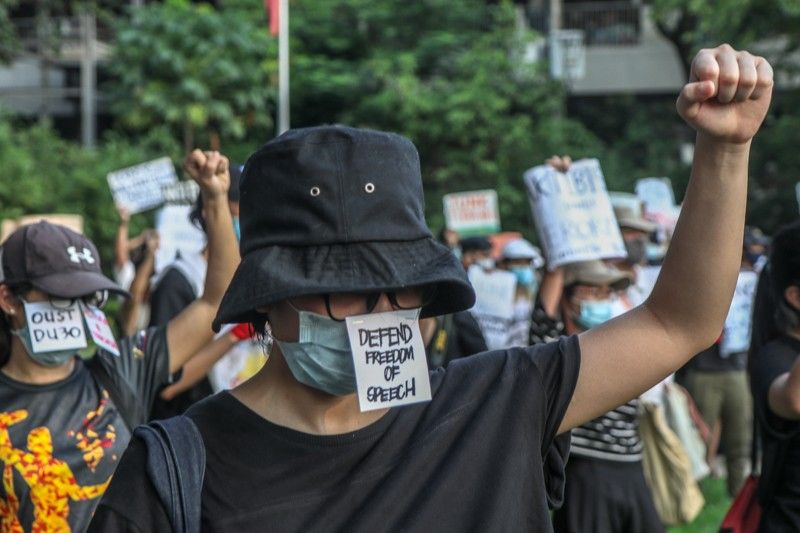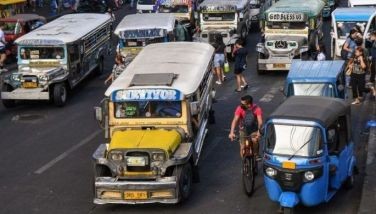Democratic freedoms in Philippines now 'severely restricted' — global rights monitor

MANILA, Philippines — Fundamental freedoms such as freedoms of expression, peaceful assembly and association in the Philippines are now “severely restricted” due to ongoing attacks against activists and journalists, an international watchdog said.
In its report released ahead of the Human Rights Day, CIVICUS Monitor, the research tool of international alliance CIVICUS, downgraded the state of democratic freedoms in the Philippines from “obstructed” to “repressed.”
CIVICUS Monitor said the rating change was due in particular to the vilification of activists and targeting of human rights defenders and journalists in the country.
“The Duterte government has incrementally chipped away at civic freedoms since it came to power in 2016 but this has further eroded over the last year,” Josef Benedict, CIVICUS Monitor Asia-Pacific civic space researcher, said.
“In 2020, we have seen systematic intimidation, attacks and vilification of civil society and activists, an increased crackdown on press freedoms and a pervasive culture of impunity take root,” he added.
Documented incidents in the report include killing of peasant activist Randall Echanis and human rights activist Zara Alvarez in August. Both had been red-tagged—labelled as communist rebels and enemies of state—before they were murdered.
It noted the ongoing attacks on press freedom: the shutdown of broadcast giant ABS-CBN and the cyber libel conviction of Rappler CEO Maria Ressa and former researcher-writer Reynaldo Santos Jr. Benedict said the threats and assaults against journalists have contributed to self-censorship and have had chilling effect within the media industry.
The arrest of human rights defender Teresita Naul and women’s rights activist Beatrice Belen as well as the continuing detention of Sen. Leila de Lima were also cited in the report.
In a report last June, the United Nations Human Rights said the vilification of dissent and attacks against perceived critics of the Philippine government are being “increasingly institutionalized and normalized in ways that will be very difficult to reverse.”
‘Draconian’ anti-terror law
CIVICUS Monitor also said that the passage of the “draconian” the Anti-Terrorism Act of 2020 contributed to the further shrinking of civic spaces in the Philippines.
“There are serious concerns that the new anti-terrorism law, which has few safeguards, will institutionalize and facilitate and abuse of power,” Benedict said.
Human rights defenders, lawyers, environmentalists and other critics of the legislation stressed the broadness and vagueness of definition of terrorism could be used to silence dissent and members of the opposition.
It has become one of the most challenged laws before the Supreme Court with at least 37 petitions filed against it.
Assessment of civil society conditions
CIVICUS Monitor provides civic space ratings for 196 countries by combining several sources of data on the freedoms of association, peaceful assembly and expression.
Each nation’s civic space is rated in one of five categories: “open,” “narrowed,” “obstructed,” “repressed” or “closed.” “Open” is the highest rating possible.
“Civic space conditions are declining year on year. In 2020, 43.4% of people now live in countries rated as having repressed civic space while the percentage of people living in countries with obstructed civic space jumped from 15.8% to 18.3%,” CIVICUS Monitor said.
The Philippines joined 43 countries including Cambodia, Venezuela and Russia in the “repressed” category.
Among the countries categorized as “closed” include Asian neighbors China, Vietnam and Laos.
Top 10 violations to civic freedoms include detention of protesters, harassment, censorship, intimidation, attacks on journalists, protest disruption, restrictive law, detention of journalists, excessive force and detention of rights defenders.
- Latest
- Trending
































